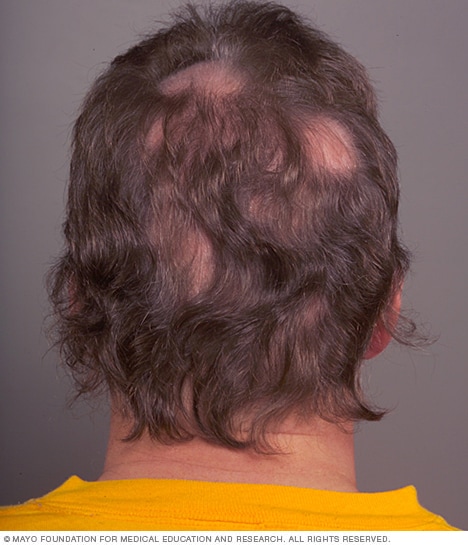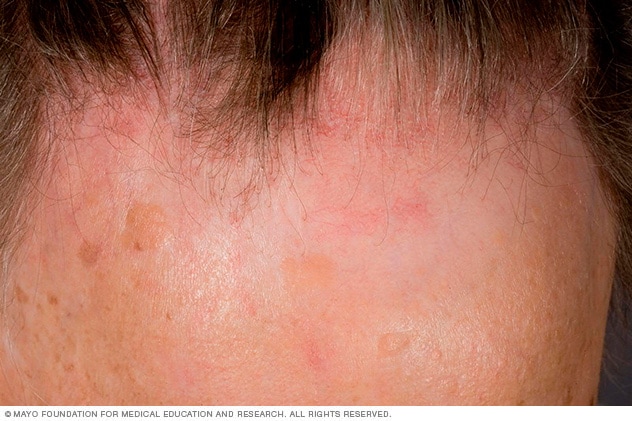Hair loss (alopecia) can impact just your scalp or your whole body, and it can be short-term or irreversible. It can be the outcome of heredity, hormonal modifications, medical conditions or a typical part of aging. Anybody can lose hair on their head, but it's more typical in guys.
Baldness typically refers to extreme hair loss from your scalp. Genetic hair loss with age is the most typical cause of baldness. Some individuals prefer to let their loss of hair run its course neglected and unhidden. Others might cover it up with hairstyles, makeup, hats or scarves. And still others pick among the treatments available to avoid further loss of hair or restore growth.
Prior to pursuing hair loss treatment, talk with your medical professional about the cause of your loss of hair and treatment options.Symptoms
Hair loss can appear in several methods, depending upon what's triggering it. It can begin suddenly or slowly and impact simply your scalp or your whole body.
Indications and symptoms of loss of hair may consist of:
Gradual thinning on top of head. This is the most typical type of loss of hair, affecting individuals as they age. In men, hair frequently begins to decline at the hairline on the forehead. Women usually have a broadening of the part in their hair. A significantly common loss of hair pattern in older women is a declining hairline (frontal fibrosing alopecia).
Circular or irregular bald spots. Some individuals lose hair in circular or patchy bald areas on the scalp, beard or eyebrows. Your skin might become itchy or agonizing before the hair falls out.

Abrupt loosening of hair. A physical or emotional shock can cause hair to loosen up. Handfuls of hair may come out when combing or cleaning your hair or even after gentle yanking. This type of loss of hair generally causes general hair thinning however is short-term.
Full-body loss of hair. Some conditions and medical treatments, such as chemotherapy for cancer, can lead to the loss of hair all over your body. The hair normally grows back.
Patches of scaling that spread over the scalp. This signifies ringworm. It may be accompanied by damaged hair, soreness, swelling and, at times, oozing.
When to see a medical professional
See your doctor if you are distressed by consistent loss of hair in you or your kid and want to pursue treatment. For ladies who are experiencing a declining hairline (frontal fibrosing alopecia), talk with your medical professional about early treatment to avoid significant long-term baldness.
Likewise talk to your physician if you discover unexpected or irregular hair loss or more than typical loss of hair when combing or cleaning your or your child's hair. Unexpected hair loss can indicate a hidden medical condition that needs treatment.
Request an Appointment at Mayo Clinic
Triggers Individuals generally lose 50 to 100 hairs a day. This typically isn't obvious because new hair is growing in at the exact same time. Loss of hair occurs when new hair doesn't change Article source the hair that has actually fallen out. Family history (heredity). The most common reason for loss of hair is a genetic condition that happens with aging. This condition is called androgenic alopecia, male-pattern baldness and female-pattern baldness. It normally takes place slowly and in predictable patterns-- a declining hairline and bald areas in males and thinning hair along the crown of the scalp in women.

Hormonal changes and medical conditions. A range of conditions can trigger irreversible or temporary hair loss, including hormonal modifications due to pregnancy, giving birth, menopause and thyroid issues. Medical conditions consist of alopecia location (al-o-PEE-she-uh ar-e-A-tuh), which is immune system related and causes patchy loss of hair, scalp infections such as ringworm, and a hair-pulling condition called trichotillomania (trik-o-til-o-MAY-nee-uh). Medications and supplements. Loss of hair can be a negative effects of certain drugs, such as those used for cancer, arthritis, depression, heart problems, gout and high blood pressure.
Radiation therapy to the head. The hair may not grow back the like it was previously.
A really demanding occasion. Lots of people experience a general thinning of hair several months after a physical or emotional shock. This type of hair loss is short-term.
Hairstyles and treatments. Excessive hairstyling or hairstyles that pull your hair tight, such as pigtails or cornrows, can cause a type of loss of hair called traction alopecia. Hot-oil hair treatments and permanents likewise can trigger hair to fall out. If scarring takes place, hair loss could be irreversible.